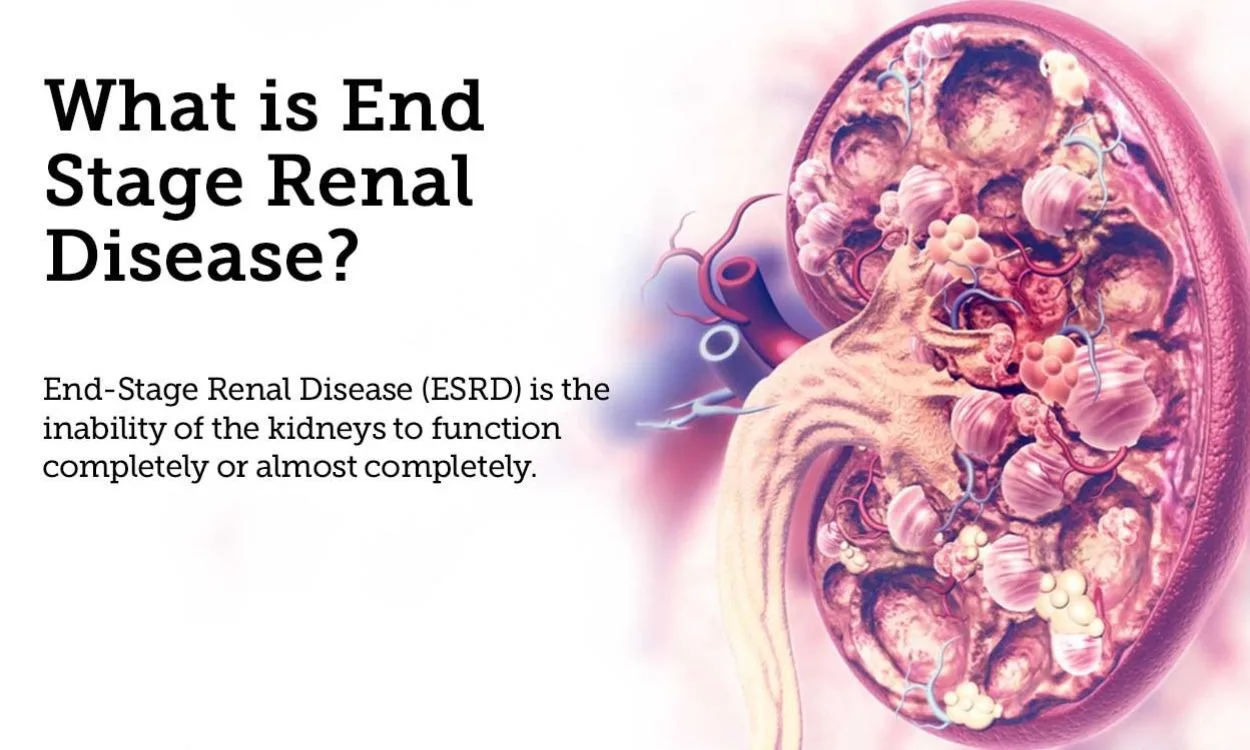What is end-stage renal disease (ESRD)?
End-stage renal disease (ESRD) is a serious medical condition that occurs when the kidneys are no longer able to function effectively. It is the final stage of chronic kidney disease (CKD) and is characterized by a significant loss of kidney function. In this stage, the kidneys are unable to filter waste products and excess fluid from the blood, leading to a buildup of toxins and electrolyte imbalances in the body.
Causes of ESRD
- Diabetes: Uncontrolled diabetes is one of the leading causes of ESRD. High blood sugar levels can damage the small blood vessels in the kidneys over time, reducing their ability to function properly.
- Hypertension: Chronic high blood pressure can also cause damage to the blood vessels in the kidneys, leading to ESRD.
- Glomerulonephritis: This is a group of diseases that cause inflammation and damage to the glomeruli, which are tiny filters in the kidneys. If left untreated, glomerulonephritis can progress to ESRD.
- Polycystic kidney disease: Inherited disorders like polycystic kidney disease can cause the kidneys to develop multiple cysts, leading to a progressive loss of kidney function.
- Other factors: Certain medications, kidney infections, kidney stones, and autoimmune diseases can also contribute to the development of ESRD.
Symptoms of ESRD
- Fatigue and weakness
- Loss of appetite and weight loss
- Difficulty concentrating and mental fog
- Swelling in the legs, ankles, and feet
- Frequent urination, especially at night
- Foamy or dark-colored urine
- Shortness of breath and difficulty breathing
- Nausea and vomiting
Diagnosis and Treatment of ESRD
To diagnose ESRD, various tests are conducted, including blood tests to measure kidney function, urine tests to check for protein and other abnormalities, imaging tests like ultrasound or CT scan, and kidney biopsy in some cases.
The treatment for ESRD typically involves dialysis or kidney transplantation, as the damaged kidneys are unable to adequately perform their function of filtering waste from the blood.
- Dialysis: This is a process that helps remove waste products and excess fluid from the blood when the kidneys are not able to do so. There are two types of dialysis – hemodialysis and peritoneal dialysis. Hemodialysis involves using a machine to filter the blood, while peritoneal dialysis uses the lining of the abdominal cavity to perform the filtration process.
- Kidney transplantation: This is considered the best treatment option for ESRD, as it involves replacing the failed kidneys with a healthy kidney from a donor. However, finding a suitable donor and undergoing transplantation surgery can be a complex and lengthy process.
Prevention and Management of ESRD
While certain causes of ESRD, such as inherited disorders, are not preventable, there are steps that can be taken to reduce the risk of developing ESRD:
- Manage underlying conditions: Keeping conditions like diabetes and hypertension under control through medication, lifestyle changes, and regular medical check-ups can help prevent kidney damage.
- Eat a healthy diet: Following a balanced diet that is low in salt, saturated fats, and processed foods can help reduce the risk of developing kidney disease.
- Stay hydrated: Drinking an adequate amount of water and staying hydrated can help maintain kidney health.
- Avoid smoking and excessive alcohol consumption: These habits can contribute to kidney damage and should be avoided.
The Fitpaa Solution – Helping You Manage ESRD
At Fitpaa, we understand the challenges faced by individuals with ESRD and their families. Our mission is to provide comprehensive support and guidance to help you effectively manage ESRD and improve your overall well-being.
With the Fitpaa app, you gain access to a personalized health and fitness team, including a fitness planner, nutritionist, and doctor. Our team will work closely with you to create a tailored fitness plan that takes into account your specific health condition, dietary requirements, and lifestyle.
By following the Fitpaa Capsule, which includes a sustainable diet plan, a 360° workout plan, and a recovery plan, you can optimize your overall health and well-being while effectively managing ESRD. The Fitpaa Capsule is designed to activate every cell in your body, release the right hormones, and support your fitness goals without compromising your health.
The Fitpaa app provides real-time guidance, accountability, and support to help you stay on track with your fitness plan. With features like a precision diet tracker and a smart workout trainer, you can easily monitor your progress and make necessary adjustments to your routine.
In addition to managing ESRD, Fitpaa can help you achieve a wide range of health and fitness goals, including weight loss, athletic bodybuilding, mental health, and disease management for conditions like diabetes and hypertension.
Trust Fitpaa to be your partner in your journey towards better health and fitness. Download the Fitpaa app today and experience the transformative power of personalized support and guidance. Start your free trial and take the first step towards achieving your health and fitness goals with guaranteed results.
Remember, your well-being is our mission, and we are here to support you every step of the way. Don’t let ESRD hold you back from living your best life. With Fitpaa, you have the tools and guidance to take control of your health and thrive.









